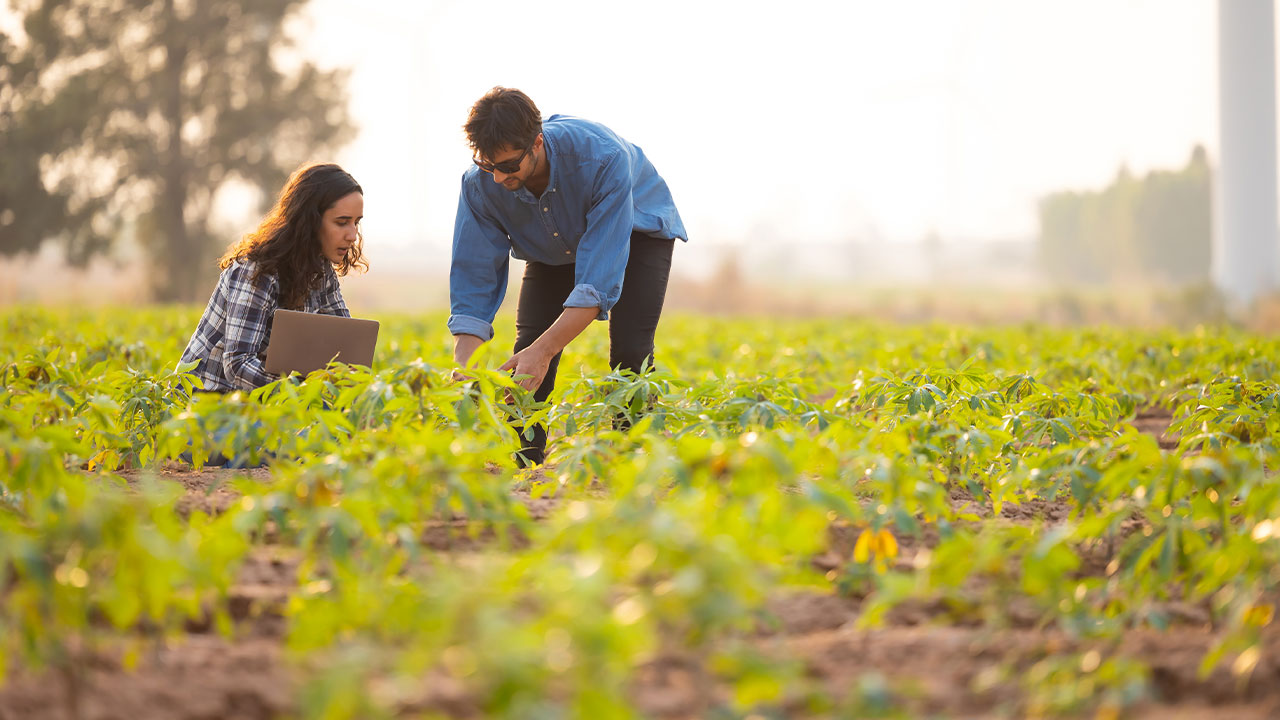content body
The Rural Sociology program at Auburn University offers a chance to study the social fabric of Alabama and contribute to its future.
Graduate students like Oliver Nell and Amelia Pugh explore the forces that shape rural life, from policy and economics to the environment and community resilience. Their research on real-world issues can drive change throughout the state and beyond.

Nell grew up in the small, rural town of Waverly, Alabama, and thought his future lay in the arts. After earning degrees in writing and music at Auburn, Nell headed to Indiana University for a master’s in arts administration. Along the way, he took courses in topics like rural sociology and agriculture and discovered his true passion.
When he learned Auburn’s College of Agriculture had a master’s program in rural sociology, he returned to the university. Nell graduated in August and is now in the doctoral program at Iowa State University, focusing on sustainable agriculture.
“I have found a lot of purpose in this work, and I think that’s why the field of rural sociology stood out to me,” he said. “It’s not just science for science’s sake. It incorporates applied studies in rural poverty, food, agriculture and other topics. For people interested in studying the issues of rural Alabama, this program is for them.”

Pugh’s path was different but equally rooted in curiosity and commitment. She studied sustainable business and history at the University of Alabama, where she immersed herself in research and civic engagement and was ultimately drawn to rural sociology for its emphasis on research with real-world impact.
“Rural sociology prioritizes applied research and is a diverse field, so it was a great choice,” Pugh said. “The fact that Auburn offered this degree was a bonus as I got to stay in the state I love.”
The program offers both thesis and non-thesis tracks, requiring either 30 or 36 credit hours. Coursework is drawn from the Department of Agricultural Economics and Rural Sociology in the College of Agriculture and the Department of Sociology, Anthropology and Social Work in the College of Liberal Arts.
Auburn value
Nell has graduated, and Pugh will do so in May, yet both see their graduate experience as a launching pad for meaningful work.
“The professors and curriculum focus on building a strong jump-off point for further study or professional work,” Pugh said. “The required thesis means we learn a variety of research methods and can explore our own interests through electives.”
That shared foundation in research and flexibility is what students and faculty alike say transforms Auburn’s program from academic training into a pathway to purpose.
“It’s not just about studying rural issues,” Nell added. “It’s about finding purpose and making a difference.”
Beyond the academic rigor, both students consider the faculty to be the true value of the program.
Pugh, for one, said she found an ideal mentor in Assistant Extension Professor Kelli Russell.
Russell and Mykel Taylor, professor and department head, lead a team within the university’s Rural Partnership Institute, an interdisciplinary initiative that uses technology and research to improve economic prosperity of rural Alabama. Their work is focused on supporting the state’s forestry industry, which aligns with Pugh’s thesis on small business succession and rural resiliency.
“All of the faculty, including Kelli Russell, Michelle Worosz, Ryan Thomson and Mykel Taylor, are incredible in their research areas and among the most experienced professors I have ever had the opportunity to work with,” Pugh said.
Nell agreed and credited the faculty for investing in students and holding them accountable to their goals.
“I gained a lot of confidence in myself and my capabilities because of Auburn faculty, which has already served me well in my current program and professional endeavors,” he said.
Next steps
Many program graduates continue in academia, like Nell, while others enter the workforce, assuming roles in non-governmental organizations, the nationwide network of Cooperative Extension Service, research institutes, other colleges and universities or local, regional or state governments.
Nell is on track to graduate in 2028, but for now, he’s interested in working in academia, the nonprofit sector or government. Pugh, similarly, is considering pursing policy, research and outreach with nonprofit and government organizations in Alabama and Washington, D.C.
“Nonprofits, public businesses and different levels of government need individuals with diverse skillsets, critical thinking skills and experience, which this program provides,” she said.
With faculty mentorship, hands-on research and a community of passionate students, Auburn’s program prepares graduates not just to study rural issues, but to lead change where it’s needed most.
Discover how you can help shape the future of rural communities.
Explore Rural Sociology






